The Truth Newspaper
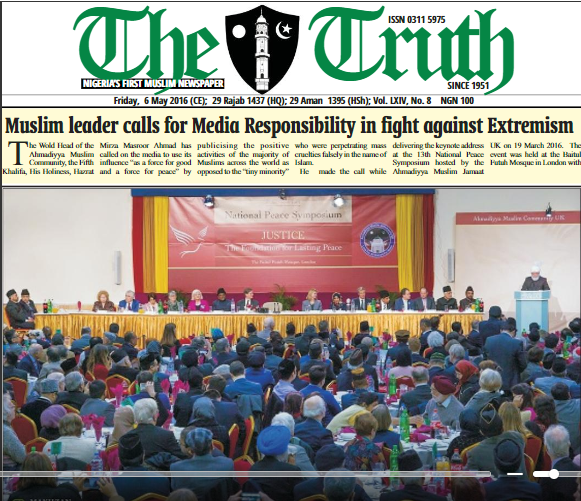
Established in 1951, The Truth Newspaper is the first Muslim newspaper in Nigeria. It continues to report Islamic news from across the globe. Publication of Ahmadiyya Muslim Community in Nigeria. https://thetruth.ng/
100 Years Ago… – News from Jamaats around the world
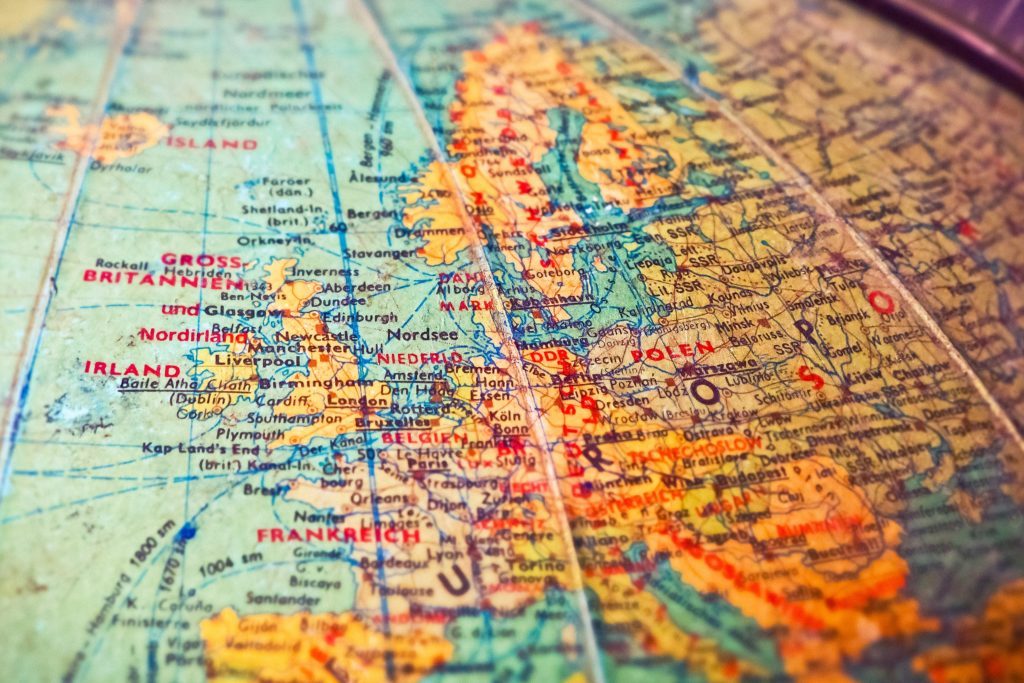
Al Fazl, 21 June and 24 June 1919 Qazi Abdullah Sahib’s letter to Hazrat Khalifatul Masih on the impact of Haqiqat-ul-Roya My beloved master, Hazrat Khalifatul Masih (may Allah be his helper) Assalamo Alaikum wa Rahmatullahi wa Barakatohu Although Haqiqat-ul-Roya, a collection of Huzoor’s lectures delivered at Jalsa Salana in 1917 was received late, but reading them had a delightful impact on the heart. Every word was refreshing. It served as an extremely sublime spiritual nourishment for the soul. One’s heart is filled with divine light, and extraordinary energy and contentment are granted for further sacrifice. At this very moment, I find not a single challenging matter which could prove to be a hurdle for me in embarking the most cherished way. Huzoor’s pearls of wisdom had an electrifying effect on me. Efficacy of Hazrat Khalifatul Masih’s prayer An extraordinary sign of the fulfillment of Huzoor’s prayer was witnessed recently. Apparently, there were no signs of brother (…), a new Ahmadi convert, being released [from prison]. According to the prison governor, several Indians were more likely to be released before him and above all, it was impossible for the governor to recommend his release. Repeated requests were made to the home secretary which were rejected every single time. In spite of the adverse conditions, through the blessings of Allah the Almighty which were absorbed by the prayers of Huzoor, such circumstances were created miraculously that the new Muslim convert was released while the others who were more likely to be released remain behind bars. Tract for tabligh A short tract has been sent for printing. 10,000 copies have been ordered for the time being. During this time of the year, I intend to carry out tabligh moving about on foot. I observed istikhara [prayer seeking good from Allah] at night and all of a sudden, before getting up, I was whispering the following words: وَاسْتَفْتَحُوا وَخَابَ كُلّ جَبَّارٍ عَنِيْدٍ “And they prayed for victory, and as a result thereof, every haughty enemy of truth came to naught.” This humble one prays for Huzoor and I request Huzoor from the depth of my heart to pray for me. Wassalam; Huzoor’s humble servant, Qazi Abdullah Qazi Abdullah Sahib’s health A telegram received from Mufti Muhammad Sadiq Sahib on 16 June indicates that Qazi Abdullah Sahib’s health is relatively better than before, all praise belongs to Allah. Members of the Jamaat are requested to pray that Allah the Almighty grants him full recovery from illness. (Editor Al Fazl) Tabligh in the UK The truth of Islam lies in its pure teachings which is being acknowledged by the people of Europe after thorough research. Listening to this week’s lecture of Qazi Abdullah Sahib in the Lecture Hall, Star Street, London, a revered gentleman and his lady who already had a discourse with him in Hyde Park, openly admitted in front of the audience that the lecture was well reasoned and true and that they totally agree with it. Another respected lady, by the name of Miss Bobby South, embraced Islam through Hazrat Mufti Sahib. She was given the Islamic name Maryam and her request of Bai‘at has been sent to Hazrat Khalifatul Masih. Servant of religion; MS Abbasi 4 Star Street, London, W2. (21 May 1919) Recent letter from Malabar Through the blessings of Hazrat Khalifatul Masih’s prayers, a discussion was held with three paighamis [those Ahmadis who had not accepted Khilafat]. By the grace of Allah, truth has become clear upon them and they have sent a request for Bai‘at to be presented before our Imam, Khalifatul Masih II. Their names are B Muhammad Kunji Sahib, G Muhammad Sahib and K Kunji Ahmad Sahib. Mahmud Ahmad Al Fazl, 24 June 1919 By the grace of Allah the Almighty, tabligh is being carried out exceptionally well. According to the weekly report, an English gentleman named Mr Scott, inhabitant of Islington, embraced Islam through Mufti Muhammad Sadiq Sahib. He was given the Islamic name Ibrahim. All praise belongs to Allah. At the Lecture Hall on Sunday evening, Hazrat Mufti Sahib delivered an address on The Blessings and Qualities of Islam in a very interesting manner. It had a positive impact on the new Muslim converts and the remaining audience which was fairly numbered. This humble one went to Southend-on-Sea on a tabligh visit where a number of people were spoken to about the verities of Islam Ahmadiyyat, aside from a public lecture. Moreover, literature was distributed. Wassalam; Humbly yours, Qazi Abdullah 4 Star Street, London, W2. (28 May 1919) A letter from Malabar A recent letter from Sheikh Mahmud Ahmad Sahib indicates that the health of Maulvi Ghulam Rasul Sahib is on the road of recovery and the wound is healing. However, in spite of extreme weakness and loss of strength, which at times led to unconsciousness, Maulvi Sahib continued to carry out tabligh and sent letters to the chiefs of that region composed in Arabic. Ahmadiyyat in Shimoga (Mysuru) Bombay’s missionary, Hakim Khalil Ahmad Sahib went to Shimoga for some days, [then] part of Mysuru’s region. There was only one Ahmadi, Mir Kalimullah Sahib (thekedar) at that time. By now, through the blessings of Allah the Almighty, a Jamaat has been established there. It has become known from Hakim Sahib’s letter that as per the needs, a mosque has been built in a matter of only a few days. Hakim Sahib will send a detailed report from Bombay. WHY I ATTENDED AHMADIYYA CONVENTION IN THE U.K. – ETSU NUPE The Etsu Nupe and the Chairman Niger State Council of Traditional Rulers, His Royal Highness, Alhaji (Dr.) Yahaya Abubakar, CFR has revealed the major reason for honouring the invitation to attend the International Convention of the Ahmadiyya Muslim Community held in the United Kingdom last year. Speaking at his Royal Palace in Bida, Niger State during the visit of the National leadership of the Ahmadiyya Muslim Jama’at Nigeria led by the Amir (National President), Alhaji (Barr.) Alatoye Folorunso Azeez, the traditional ruler disclosed that the inner impetus to have first-hand information thereby correcting the wrong
100 Years Ago… – News highlighting the progress of Ahmadiyyat

Al Fazl, 3-7 June 1919 Hazrat Master Abdur Rahim Nayyarra The peaceful teachings of the Ahmadiyya Jamaat and the practical display of sincerity and loyalty by Ahmadis towards Britain is generating feelings of love in the hearts of several officials. This phenomenon is not confined to India but in fact, it can be observed outside of India as well. Hence, a friend states [from the UK] that a person who had been living with an Ahmadi from a long time went to a British officer in order to find work. When the officer began to interview the applicant and asked about his place of residence, he replied that he lived with an Ahmadi. Thereupon the following discussion took place: Officer: Are you an Ahmadi as well? Applicant: [Afraid that the officer might be offended by the name of an Ahmadi] No sir! Officer: It is strange that you have been living with an Ahmadi for such a long time, but you have not accepted the truth. Go and become an Ahmadi first and come back (on a certain date). We are grateful to Allah the Almighty that several officials have reverance for the honesty, sincerity and loyal sentiments of Ahmadis. A pious judge News has come in from a foreign country that opponents have filed a false case against Ahmadis. Before appearing in court, the Ahmadi lawyer handed over several books of the Ahmadiyya Jamaat to the judge in order to inform him about its beliefs. The honorable judge read these books and said: “Before reading these books, I used to believe that the Holy Prophet[sa] was (God forbid) a dishonest and deceitful person. However, after going through these books, my point of view changed, so much so that my wife and I began to constantly repent and in fact, we became quite perturbed for our wellbeing.” May Allah the Almighty enable him to become an Ahmadi Muslim. An officer’s life saved The young man who saved the life of Lieutenant […] at Hafizabad railway station was Bashir Hayat Ahmadi, son of sub-inspector, Muhammad Hayat Sahib Ahmadi. We are proud at the loyal act of this Ahmadi gentleman. The promulgation of Ahmadiyyat in Rohilkhand Hafiz Syed Mukhtar Ahmad Sahib Mukhtar Shahjahanpuri writes: “During the past three years, Ahmadiyyat has progressed and continues to advance parallel to the increase in intensity and vehement opposition in several districts. Since the initiation of opponents’ gatherings, 40 individuals have accepted Ahmadiyyat in Pilibhit Bareilly and Shahjahanpur. The increase in numbers of the Ahmadiyya Jamaat during the past three years has never been witnessed before, even in decades long periods. “It becomes evident from the current climate that as the rising opposition causes difficulty and brings about the loss of wealth and life for Ahmadis, by the grace of Allah the Almighty, it also serves as a remarkable means for the progress, promulgation and introduction of Ahmadiyyat. “The present condition is such that in the last week of April, 15 individuals of Bareilly accepted Ahmadiyyat. Today, two young men of Shahjahanpur sent their requests of Bai‘at. Their acceptance of Ahmadiyyat will be a source of blessings for the Ahmadis of Shahjahanpur, Insha-Allah. Among these gentlemen is Syed Qutbuddin Sahib, son of Maulvi Syed Muinuddin Sahib who translated the book Napoleon Azam. It is quite fascinating that in the same week, when the wording of Maulvi Muinuddin Sahib’s translated book was presented in the article discussing an earthquake as a proof for the meaning of war to also be taken from the word ‘earthquake’, Syed Qutbuddin Sahib entered the pale of Ahmadiyyat.” Syed Qutbuddin Sahib’s request of Bai‘at “Syedi [my master] and Maulai [my leader]; Assalamo Alaikum wa Rahmatullahi wa Barakatuhu!During the past three months, I became well informed by reading the fine works of Jariyullah fi Hulalil Anbiya [the champion of Allah in the mantle of all the prophets], the Promised Messiah and Imam Mahdias and several books of beloved Huzoor [Hazrat Khalifatul Masih IIra]. I carried out discussions about Ahmadiyyat and listened to certain discourses. I attended non-Ahmadi gatherings that were conducted here this year and read several books of theirs. Moreover, I compared some books to each other. Consequently, Allah the Almighty granted me strength to reach this conclusion that Hazrat Jariyullahas [the Promised Messiahas] was truthful and honest in all his claims. Thus, I respectfully request beloved Huzoor to bless me with the honour of Bai‘at and pray for me to remain resolute and steadfast. Your servant, Syed Qutbuddin.” Syed Shujaat Hussain Sahib’s request of Bai‘at “Syedi [my master] and Maulai [my leader]; Assalamo Alaikum wa Rahmatullahi wa Barakatuhu! I had the opportunity to examine several books of the Promised Messiahas here. Once I finished reading Kitab-ul-Bariyyah, by the grace of Allah the Almighty, the truth became completely manifest upon me and I was fully satisfied that the Promised Messiahas was truthful in all his claims. Now, I wish that beloved Huzoor [Hazrat Khalifatul Masih IIra] bless me with the honour of Bai‘at and pray that I remain resolute and steadfast. Wassalam; Your humble servant, Shujaat Hussain of Shahjahanpur, Overseer at the Court of […].”
WW3 is on the Horizon – Find out how together, we can #STOPWW3 – Join Our Campaign
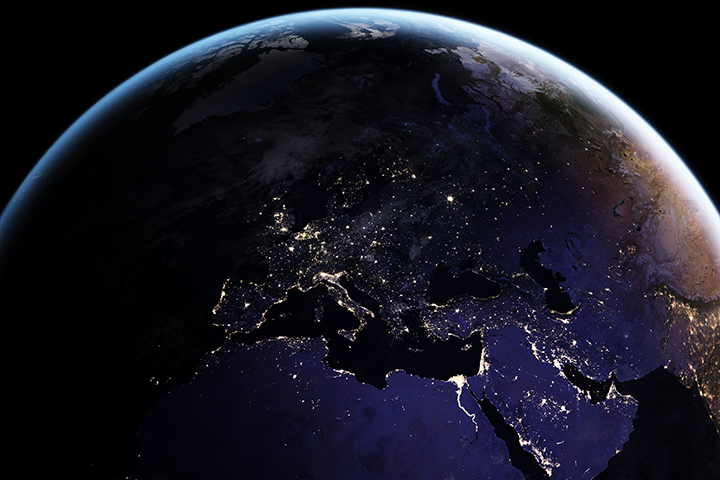
Find out how together, we can #STOPWW3 Join us here – #STOPWW3
The Messiah Has Come
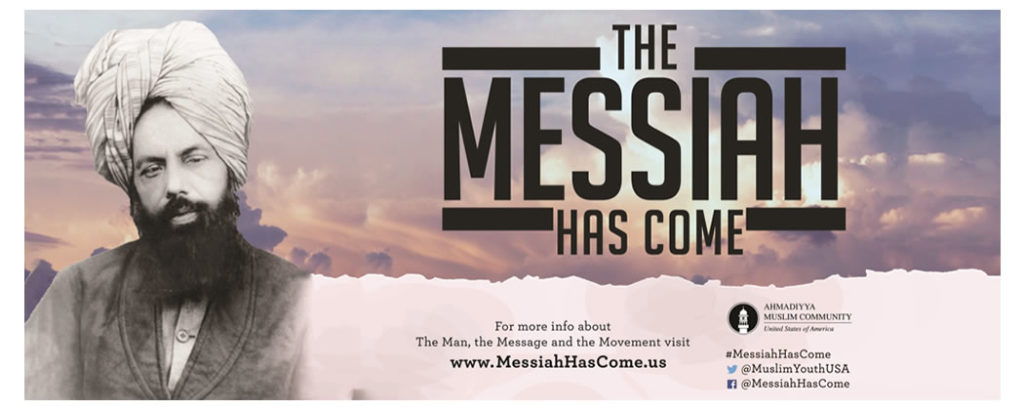
In 1835, Mirza Ghulam Ahmadas was born in the unknown village of Qadian, India. In 1889, he founded the Ahmadiyya Muslim Community. By the end of his life he had hundreds of thousands of followers. Today, his peaceful community numbers in the many millions, and grows at a remarkable rate each year. Its adherents hail from every faith, nation, and walk of life. Among his followers are Nobel Prize winners, United Nations Director-Generals, and celebrated authors, artists, and leaders of nations. They all claimed that by following Ahmad they achieved something no longer seen in the contemporary world — a genuine, two-way connection with our Creator; spiritual enlightenment in our age of darkness. Ahmad made a remarkable claim. He said that he was the long-awaited Messiah and Reformer foretold by Christianity, Islam and countless other religions. He said that as Islam was the universal religion, the Reformer to come in this age was to be a single man, born and raised in the all-embracing Muslim faith. But what of the first Messiah, Jesus? With Biblical, Quranic, and historical argumentation he proved that Jesus of Nazareth survived the crucifixion, fled East and died a natural death in India. Ahmad claimed that the old Jesus would never come back, and second coming of Jesus that Muslims and Christians alike await was a spiritual rebirth, rather than a physical descent from the skies. He claimed to be a Prophet for our time, a deputy to the Prophet Muhammad, peace be upon him, who was and always will be the greatest of all Prophets. Ahmad did not rest with claims alone, but proved them with ceaseless intellectual output and the testimony of heavenly signs. Thus was the long-awaited double eclipse in the month of Ramadan fulfilled in his lifetime. Thus did he call those who branded him a liar to prayer duels and emerge in humble victory. Thus did his prophecies foretell the Great War and countless other world events. But his truest proof lay in the spiritual revolution that he created among his followers. The connection that they forged with God by following Ahmad brought with it fresh inspiration and revelation. This contact with the Divine sustained the spiritual lives of his followers 125 years ago, and continues to do so today. Over half a million join each year — their stories of Divine Experience are numberless. Ahmad had no political ambitions. He shunned the world and lived a life of hardship and restraint. His community does not seek to conquer lands, but to conquer hearts. Its aim is to reconnect man with God, and to reconnect the hearts of humanity with each other. Its method is simple: to follow the true teachings of Islam, as revealed in the Holy Qur’an to the Prophet Muhammad, peace be upon him. It does so under divine guidance, in the form of elected spiritual successorship known as Caliphate. Today we live under the fifth Caliph, Mirza Masroor Ahmad, an internationally renowned ambassador of peace, and a beacon of spiritual guidance. He travels the world purveying the message of Islam Ahmadiyya, the True Islam. This Islam is far removed from the fanaticism of extremists, and is the path to spiritual, social, and international peace that our world so sorely needs.
Khilafat
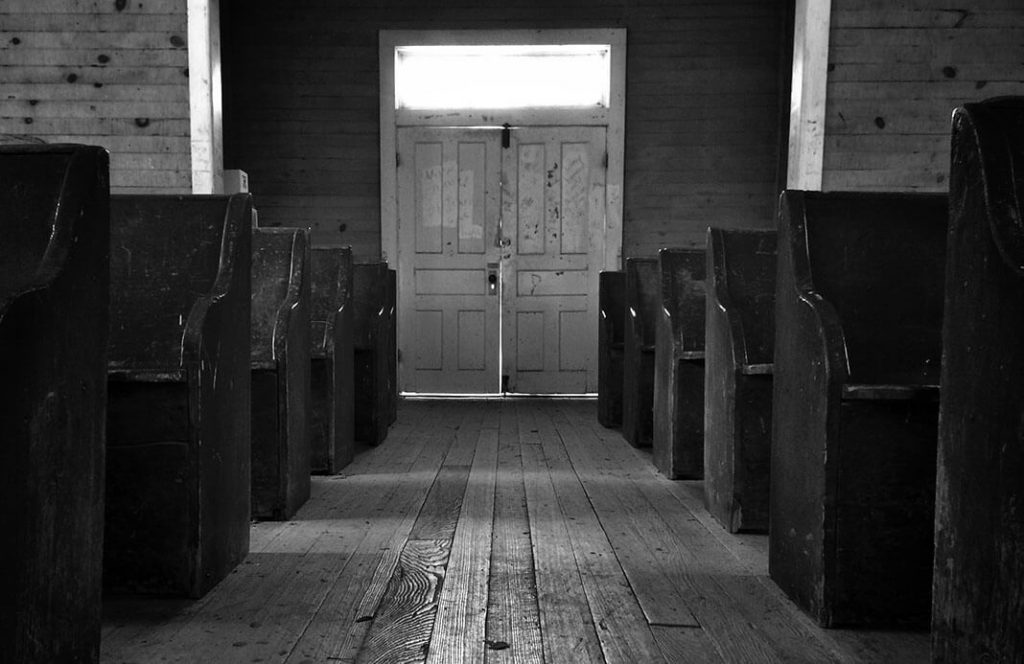
Introduction A Khalifa literally means a ‘successor’. Khalīfah is an Arabic word used in the Qur’an to denote a person who succeeds or represents a forebear. The institution as a whole is called Khilāfah, which is referred to on the Indian Sub-continent as Khilafat. The Holy Qur’an specifically promises the Muslim Community that ‘Khilafat’, or ‘successorship’ will remain among them after the demise of the Prophet Muhammadsa, Allah has promised to those among you who believe and act righteously, that He will surely make them Successors (Khulafā) in the earth, as He made Successors from among those who were before them; and that He will surely establish for them their religion, which He has chosen for them; and that He will surely grant them security and peace in place of their fear.(Holy Qur’an, 24:56) This verse clearly and explicitly foretells the appearance of Khulafā, (the Arabic plural of ‘Khalifa’), among the Muslims as there were among previous peoples. These Khulafa will come to establish the faith, and to give people ease and security at a time of fear. The Promised Messiah, Hazrat Mirza Ghulam Ahmadas explained the need for Khulafa as follows: ‘A successor is called a Khalifah. The successor of a prophet in the real sense can only be the one who has the excellences of a prophet on a shadowlike basis…in fact a Khalifah is the shadow of a prophet. As no person can live forever, therefore Allah the Exalted willed to establish the beings of prophets, who are the most eminent and the best among all the beings of the world, on a shadow-like basis till the Day of Judgement. It is with this objective that Allah the Exalted chose Khilafat so that the world may never and at no time be deprived of the blessings of prophethood.’ The Prophet Muhammadsa elaborated on the future appearance of Khilafat among his followers in a well-known narration: HIS HOLINESS MIRZA MASROOR AHMADATBA KHALIFA OF THE AHMADIYYA MUSLIM COMMUNITY “Prophethood shall remain among you as long as God wills. Then khilafat on the pattern of prophethood will commence and remain as long as He wills. A corrupt monarchy shall then follow and it shall remain as long as God wills. There shall then be a tyrannical despotism which shall remain as long as God wills. Then once again khilafat will emerge on the precept of prophethood.” (Masnad-¬Ahmad, Mishkat, Chapter Al-Anzar Wal Tahzir). Thus the Prophet Muhammadsa foretold that after his demise, true spiritual Khilafat will emerge. Then would follow various phases of Islamic rule, each worse than the last, before ‘Khilafat on the precepts of Prophethood’ would reappear once more. History has borne witness that every word of the Holy Prophetsa has been fulfilled. After his own passing, there emerged spiritual leadership in the form of the four Rightly-Guided Khulafa. Then there followed age after age of successive Muslim leadership, the integrity of which dissipated every century. Then, in the 19th Century, came the advent of the Promised Messiahas, a follower-prophet after the Prophet Muhammadsa. After Hazrat Mirza Ghulam Ahmad’s demise, there once again appeared Khilafat ‘on the precept of Prophethood,’ providing spiritual guidance in an age of worldly decadence. The current Khalifa of the Ahmadiyya Muslim Community is Hazrat Mirza Masroor Ahmadatba, a spiritual light in this age of darkness, renowned throughout the world as a tireless campaigner for international peace and justice. *** If you want to learn more about Khilafat after reading through these pages, you can discover more articles, books, and multimedia on the http://www.alislam.org website. Types of Khilafat The 2nd Khalifa of the Ahmadiyya Muslim Community, Hazrat Mirza Bashirrudin Mahmud Ahmadra delineated the different kinds of Khilafat in his erudite commentary on the following verse: Allah had promised to those among you who believe and do good works that He will surely make them Successors in the earth, as He made Successors from among those who were before them; and that He will surely establish for them their religion which He has chosen for them; and that He will surely give them in exchange security and peace after their fear: They will worship Me, and they will not associate anything with Me. Then who so is ungrateful after that, they will be the rebellious. (Holy Qur’an, 24:56) He explained: ‘The present verse embodies a promise that Muslims will be vouchsafed both spiritual and temporal leadership. The promise is made to the whole Muslim nation but the institution of Khilafat will take a palpable form in the person of certain individuals who will be the Prophet’s Successors and the representatives of the whole nation. They will be, as it were, Khilafat personified. The verse further says that the fulfilment of this promise will depend on the Muslims’ observing the Prayer and giving the Zakat and on their obeying the Messenger of God in all religious and temporal matters concerning the nation. When they will have fulfilled these conditions, the boon of Khilafat will be bestowed upon them and they will be made the leaders of nations; their state of fear will give place to a condition of safety and security, Islam will reign supreme in the world, and above all the Oneness and Unity of God – the real purpose and object of Islam – will become firmly established. The promise of the establishment of Khilafat is clear and unmistakable. As the Holy Prophet is now humanity’s sole guide for all time, his Khilafat must continue to exist in one form or another in the world till the end of time, all other Khilafahs having ceased to exist. This is among many others the Holy Prophet’s distinct superiority over all other Prophets and Messengers of God. Our age has witnessed his greatest spiritual Khalifa in the person of Ahmad, the Promised Messiah. The Qur’an has mentioned three kinds of Khulafa: Khulafa, who are Prophets such as Adam and David. About Adam, God says in the Qur’an: “I am about to place a vicegerent in the earth” (2:31); and about David He says: “O David, We have made thee a vicegerent in the earth”
Islam – Introduction
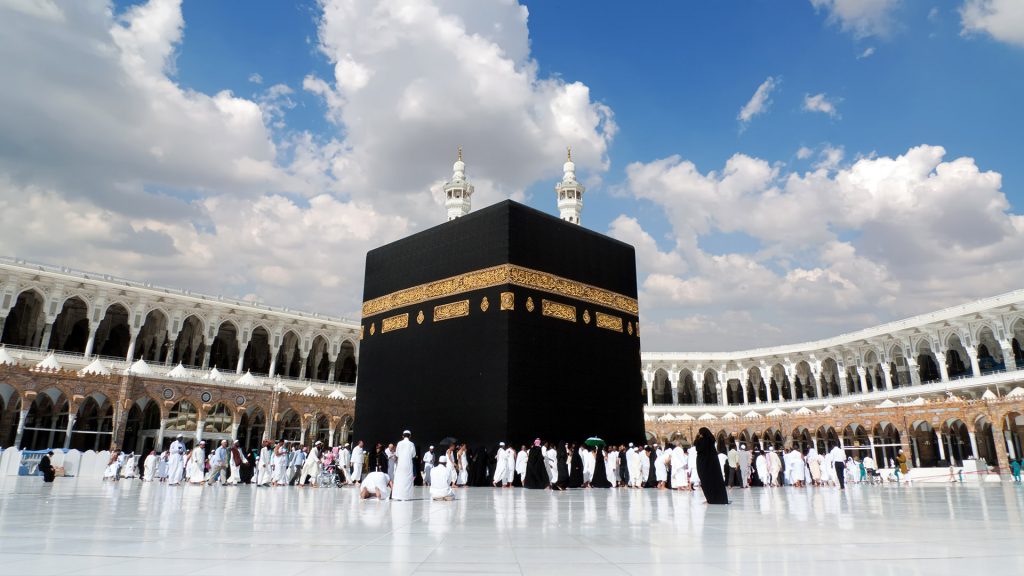
What does Islam really teach? What are its fundamental beliefs, and what are the actions it enjoins? What is the Qur’an, and what wisdom does it contain? These pages seek to answer these questions, and give the reader a perfect starting point to learn about this great faith. We start with the Articles of Faith, which are the six core beliefs of Islam. As it is a key principle in Islam that belief must be put into action, we then move onto the Pillars of Faith, which are the five key religious acts to be performed by Muslims. Thereafter we discuss the Qur’an, and offer an overview of Islamic History. Please note that the letters (sa)/pbuh or (as) appearing after the name of the Prophet Muhammadsa and other Prophets respectively, indicates an Arabic honorific translating to ‘peace be upon him.’ (ra) indicates ‘May Allah be pleased with him/her.’ Further Learning Once you’ve exhausted the pages on this website, you may want to know where else you can learn about Islam! For that reason, we’ve compiled some further sources of education below. Books An Elementary Study of Islam By Hazrat Mirza Tahir Ahmad This book, written by the blessed 4th Khalifa of the Ahmadiyya Muslim Community, provides an insightful overview of the core teachings of Islam. Much of this section is excerpted from this wonderful introduction. Read it now. Holy Qur’an with Short Commentary This publication of the Ahmadiyya Muslim Community is a perfect introduction to the text of the Qur’an itself. With an easy-to-read English translation, and commentary summarised from the 2nd Khalifa’s, the book constitutes a short but in-depth primer to Qur’anic scholarship. Read it online or by PDF. Philosophy of the Teachings of Islam By Hazrat Mirza Ghulam Ahmad This classic of Ahmadiyya literature has introduced countless souls to the world of Islam. A deep and revolutionary analysis of the Islamic teachings by the Promised Messiah himself. Enlightenment awaits! Read it now. You can find countless more books freely available on the Alislam library. Multimedia MTA International The revolutionary broadcasting channel of the Ahmadiyya Muslim Community, MTA (Muslim Television Ahmadiyya) now has several different channels with endless content on Islam 24/7. See it on YouTube, watch live on its website, or visit channel 787 on Sky TV. Alislam.org Alislam is the international homepage of the Ahmadiyya Muslim Community. It is a repository of information on Islam and the Ahmadiyya Muslim Community, featuring thousands of books, articles, and hours of media production. Visit Alislam now. Ask Islam This is a treasure-trove of information on every subject, excerpted from audio recordings of the late 4th Khalifa of the Ahmadiyya Muslim Community, Hazrat Mirza Tahir Ahmad. Just search your query, and find an answer! Visit now. The Tahir Archive This YouTube channel collects all the video material of the 4th Khalifa of the Ahmadiyya Muslim Community, Hazrat Mirza Tahir Ahmad. Here you can find full original Q&A sessions, lectures delving into the depths of Holy Qur’an teachings, and videos with translations into many of the world’s languages. A must watch for further education on Islam. Watch it online here. Articles of Faith Belief in God’s Unity The following article was written by the 4th Khalifa of the Ahmadiyya Muslim Community, Hazrat Mirza Tahir Ahmad, in his much-lauded book, An Elementary Study of Islam. *** This seems to be a rather simple and elementary concept. It should not be difficult for anybody to understand the oneness of God, and there the matter seems to rest. But in fact there is far more to this than meets the eye. When one examines the concept of Unity in depth, the entire world of religion seems to revolve around this pivotal point. This belief influences man’s life in all its aspects. It also implies the negation of all else but God. So belief in the oneness of God is not the end-all of belief, but all other beliefs spring from this fountain-head of eternal truth. This also delivers a message of liberation from all other yokes and releases man from all obligations except such as is born out of his submission to God. This article has been further elucidated from different angles, both in the Holy Qur’an and the traditions of the Holy Prophet(sa) of Islam. For instance, the declaration ‘La houl wala quat illa Billah’ (There is no all-encompassing power except Allah) opens up new windows for a deeper and wider understanding of Unity. It negates all fears other than the fear of God. The second part of the same brings to the focus of attention another very important aspect of Unity, i.e. that the power to achieve good is solely dependent on God and that He is Master of all sources of strength and energy. Hence while the first part relates to the negative aspects of power, the second part relates to the positive. In application to human actions, intentions and motivations etc., these two forces are all-encompassing. Man’s intentions and his subsequent actions are always guided and controlled either by fear or hope and there is no exception to this rule. Those who do good deeds do so out of fear and hope, and those who indulge in vices are motivated by the same. The fears of non-believers belong to the negative ungodly category, and they shape their lives in accordance with these worldly fears. Sometimes they are afraid of earning the displeasure of monarchs and authorities, sometimes they are afraid of society in general or of despots and bullies. Again, sometimes they act evilly out of a fear of poverty and loss etc. So, in a world full of vices, a large part of human actions can be explained with reference to these fears. The belief in Unity dispels these fears altogether and brings to one’s mind the importance of the fear of God, which means that one must not be afraid of the displeasure of the ungodly, but should always endeavour to avoid displeasing God and shape one’s life according to that fear alone. In the positive sense, the same applies to all human motivations and consequent
Ahmadiyya Beliefs
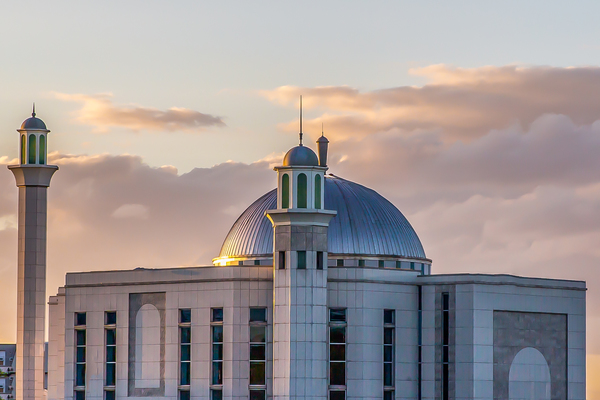
Overview The Ahmadiyya Muslim Community is a community of Muslims who believe that Mirza Ghulam Ahmad of Qadianas (1835-1908) was the Promised Messiah and Imam Mahdi. Ahmadis believe that he was the foretold reformer for the latter days, promised in both Islamic and non-Islamic religious texts. For while it exults in material progress, the world finds itself in an age of spiritual darkness. Ahmad claimed to be the light for this age, to guide seekers of truth into spiritual enlightenment. His followers now number in the tens of millions, spread over 200 countries of the world. Though they are persecuted bitterly in some parts of the globe, and deemed heretical by many an established cleric, their cause continues to find progress in every quarter of the globe. Having translated the Holy Qur’an into over 70 languages, their mission is to spread the original peaceful teachings of Islam throughout the world. The community has now 4 international satellite television channels, spreading the peaceful and rational message of the Prophet Muhammadsa throughout the globe. Its literature and missionary efforts have been hailed as pioneering in the USA, Europe and Africa in particular. In recent years, the message of the Promised Messiahas has become more widely heard in the Middle East, with unprecedented numbers of Arabs joining. What can explain the success of such a religious community, perhaps the only in the world to rely entirely on the donations of its own adherents? How can we explain the success of a spiritual movement that is bitterly opposed by many governments and religious orders alike? Perhaps the answer lies in divine support for a refreshingly rational and peaceful presentation of Islam, with a message that satisfies the mind and moves the heart. Beliefs This page will explore the beliefs of Ahmadi Muslims, exploring both similarities and differences with our Non-Ahmadi ‘Sunni’ and ‘Shia’ brothers and sisters. A brief summary follows: Ahmadi Muslims believe in the Five Pillars of Islam, the Six Articles of Faith, the superiority of the Qur’an over all other texts, the station of Muhammadsa as Seal of the Prophets, the pre-eminence of the Rightly-Guided Khulafa, the high station of the Prophet’ssa companions, and all the other major aspects of Islam agreed upon by the 4 major schools of Sunni Islam. We also believe in the lofty station of the immediate descendants of the Holy Prophet Muhammadsa , while not ascribing inherent divine leadership to them. Ahmadi Muslims differ from contemporary Sunni & Shia Muslims in a few important areas: Death of Prophet Jesusas Ahmadi Muslims believe that Jesusas was a Prophet like other Prophets. As such, we do not accept the idea held by many clergy today that Jesusas has ascended to heaven, and is waiting to return with sword in hand, to herald a bloody end to the world. Ahmadi Muslims deem this belief a dishonour to the peaceful and rational teachings of Islam, and trace this belief’s origin in Muslim thought to an era long after that of the Prophet Muhammadsa , when great numbers of Christians entered into the fold of Islam. Such beliefs find no basis in the Qur’an or the authentic traditions of the Qur’an and are in fact refuted by them. Based on Qur’anic, Biblical, and historical records, Ahmadis believe that Jesusas survived the crucifixion attempt on his life, escaped the clutches of the Roman Empire, and fled East to the lands of Tibet and India. There he preached to the lost tribes of the House of Israel, before dying at the age of 120 in Kashmir. There his tomb is to be found, venerated by the local population as the tomb of Jesusas , who visited the land 2000 years ago. Second Coming of Jesusas There is a clear prophecy in the Qur’an about the second appearance of the Prophet Muhammadsa in the Latter Days. There are also explicit prophecies of the Prophetsa regarding the Second Coming of the ‘Messiah, Son of Mary,’ as well as references to the arrival of the ‘Imam Mahdi.’ To Ahmadis, all these prophecies relate to different aspects of the same Prophetic figure in this era. As Jesusas has passed away, the ‘second coming of the Messiah’ can only have a metaphorical and symbolic meaning: in the same way that Jesusas was the Messiah for the Jews in the 14th century after Moses, the prophecy foretells a messianic figure for the Muslims appearing in the 14th century after the Prophet Muhammadsa . The character of both respective communities would be similar. The Jews in the time of Jesusashad become extremists, with many supporting a terrorist movement known as the Zealots who sought to overthrow the ruling Roman Empire and establish a Jewish state. In the same way, the Muslim clergy of today adhere to extremist beliefs, often showing support to extremist groups who seek to overthrow western government by violent means. Moreover, the metaphor of the ‘Second Coming’ indicated that the character of the respective Messiahs would be similar. Whereas Jesusas came with a teaching of compassion and tenderness to a hard-hearted Jewish nation, so too would the Muslim Messiah come with a teaching of peace and sympathy to a hard-hearted Muslim nation. Thus the Second Coming was symbolic, indicating that there would be a spiritual affinity between the Jewish Messiah and the Muslim Messiah. Not only this, but Ahmadis believe that the prophecies of the Imam Mahdi indicate that he would also be the Messiah, and would be a spiritual manifestation of the Prophet Muhammadsahimself. Taken together, both the Qur’an and the narrations tell us that the Mahdi and the Messiah are two aspects of the same individual. This individual would be a spiritual reflection of the Prophet Muhammadsa himself. For Ahmadi Muslims, that individual was the Mirza Ghulam Ahmad of Qadianas . Finality of Prophethood The Holy Qur’an calls the Prophet Muhammadsa the ‘Seal of the Prophets’. It is often claimed that Hazrat Mirza Ghulam Ahmadas contradicted this by claiming to be a Follower-Prophet himself. This is a misconception based on the idea that the term the ‘Seal of the Prophets’ means that there would be literally no
Introduction to Islam

What does Islam really teach? What are its fundamental beliefs, and what are the actions it enjoins? What is the Qur’an, and what wisdom does it contain? These pages seek to answer these questions, and give the reader a perfect starting point to learn about this great faith. We start with the Articles of Faith, which are the six core beliefs of Islam. As it is a key principle in Islam that belief must be put into action, we then move onto the Pillars of Faith, which are the five key religious acts to be performed by Muslims. Thereafter we discuss the Qur’an, and offer an overview of Islamic History. Please note that the letters (sa)/pbuh or (as) appearing after the name of the Prophet Muhammadsa and other Prophets respectively, indicates an Arabic honorific translating to ‘peace be upon him.’ (ra) indicates ‘May Allah be pleased with him/her.’ Further Learning Once you’ve exhausted the pages on this website, you may want to know where else you can learn about Islam! For that reason, we’ve compiled some further sources of education below. Books An Elementary Study of Islam By Hazrat Mirza Tahir Ahmad This book, written by the blessed 4th Khalifa of the Ahmadiyya Muslim Community, provides an insightful overview of the core teachings of Islam. Much of this section is excerpted from this wonderful introduction. Read it now. Holy Qur’an with Short Commentary This publication of the Ahmadiyya Muslim Community is a perfect introduction to the text of the Qur’an itself. With an easy-to-read English translation, and commentary summarised from the 2nd Khalifa’s, the book constitutes a short but in-depth primer to Qur’anic scholarship. Read it online or by PDF. Philosophy of the Teachings of Islam By Hazrat Mirza Ghulam Ahmad This classic of Ahmadiyya literature has introduced countless souls to the world of Islam. A deep and revolutionary analysis of the Islamic teachings by the Promised Messiah himself. Enlightenment awaits! Read it now. You can find countless more books freely available on the Alislam library. Multimedia MTA International The revolutionary broadcasting channel of the Ahmadiyya Muslim Community, MTA (Muslim Television Ahmadiyya) now has several different channels with endless content on Islam 24/7. See it on YouTube, watch live on its website, or visit channel 787 on Sky TV. Alislam.org Alislam is the international homepage of the Ahmadiyya Muslim Community. It is a repository of information on Islam and the Ahmadiyya Muslim Community, featuring thousands of books, articles, and hours of media production. Visit Alislam now. Ask Islam This is a treasure-trove of information on every subject, excerpted from audio recordings of the late 4th Khalifa of the Ahmadiyya Muslim Community, Hazrat Mirza Tahir Ahmad. Just search your query, and find an answer! Visit now. The Tahir Archive This YouTube channel collects all the video material of the 4th Khalifa of the Ahmadiyya Muslim Community, Hazrat Mirza Tahir Ahmad. Here you can find full original Q&A sessions, lectures delving into the depths of Holy Qur’an teachings, and videos with translations into many of the world’s languages. A must watch for further education on Islam. Watch it online here.
Other Prophets
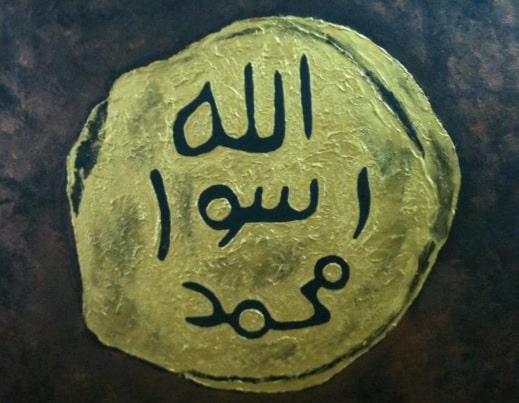
Overview Our universe and all that it contains is the creation of Allah, the Wise. He has created everything with a purpose and to achieve that purpose He has provided all necessary guidance and means. He has created man in His own image and has made him the chief of His creation. Both good and bad have been made manifestly clear to man. He has also been blessed with wisdom by which he can find out the right path, can sift right from wrong and truth from falsehood. The Holy Quran tells us that man has been endowed with both spiritual and physical eyes by which he can distinguish good from evil and has been given a tongue and two lips that he might ask for guidance, and above all God has placed before him a supreme object of his life that he may devote all his faculties and energies to achieve it. Man has been granted the choice of both selection and action. Hence he is the master of his own destiny. To achieve the object of life, God, out of His benevolence raises prophets, who serve as models. These prophets have been appearing in every people and in all parts of the world. Their mission has always been to guide mankind to its Creator, through their example and model. The guidance revealed through each prophet was designed to cater for the specific needs of the time and location; hence they were essentially temporary in nature. With the advancement and maturity of mankind God sent advanced and matured teachings suitable to their time. God’s guidance for human race commenced through Adam (peace be upon him) and reached the zenith through Mohammed (peace and blessings of Allah be upon him). God says, “This day have I perfected your religion for you and completed my favor upon you and have chosen for you Islam as religion.” – Holy Qur’an, 5:4 Thus the revelation of Law, or Shariah, was perfected and completed by Islam. According to one saying of the Prophet Muhammadsa the number of prophets who were chosen to convey the message of God to mankind is 124,000. The names of all of them are not mentioned anywhere. However the Holy Quran states in very clear words, “There are no people (in the world) to whom We have not sent a Warner.” – Holy Qur’an 35:25 It also mentions the following twenty-eight prophets by name: Adam (peace be upon him), Noah (peace be upon him), Abraham (peace be upon him), Lot (peace be upon him), Ishmael (peace be upon him), Isaac (peace be upon him), Jacob (peace be upon him), Joseph (peace be upon him), Hud (peace be upon him), Salih (peace be upon him), Shuaib (peace be upon him), Moses (peace be upon him), Aaron (peace be upon him), David (peace be upon him), Solomon (peace be upon him), Elias (Elijah) (peace be upon him), Jonah (peace be upon him), Ezekiel (Dhul-Kifl) (peace be upon him), Elisha (Alyasa) (peace be upon him), Idris (Enoch) (peace be upon him) (19:57), Job (peace be upon him) (4:164), Zechariah (peace be upon him) (19:3),John (Yahya) (peace be upon him) (3:40), Jesus (peace be upon him) (3:46), Luqman(peace be upon him) (31:13), Ezra (peace be upon him) (9:30), Dhul-Qarnain (peace be upon him) (18:84), Mohammad (peace and blessings of Allah be upon him) (48:30). Belief in all the prophets and their messages is an integral part of the belief of every Muslim. The Holy Quran states, “This messenger of Ours believes in that which has been revealed to him from his Lord, and so do the believers; all of them believe in Allah, and in His angels, and in His Books, and in His Messengers, saying, ‘We make no distinction between any of His Messengers.’ ” –Holy Qur’an, 2:286. In prophethood all are equal but their ranks are different as is clear from the following verse of the Holy Quran, “These Messengers have We exalted some of them above others; among them there are those whom Allah spoke; and some of them He exalted in degrees of rank…’ – Holy Qur’an, 2:254 So Wherever and to whichever people prophets have been sent, they are our (Muslims) prophets as well, and we hold them in great reverence. The following brief histories of a few of them is given for the benefit of the reader. This overview was written by Daud A. Hanif, as originally published by the Muslim Sunrise. Other Prophets Adam This article was first published on alislam, titled Quran, Adam and Original Sin by Belal Khalid. An extract was also taken from an interview by Professor Wraig of Hadhrat Mirza Ghulam Ahmadas . *** Evolution and History of Mankind from Quran The Holy Quran says that God desired to bring into existence a universe which should serve as a manifestation of His Majesty and His Light and that this was the cause of the creation of universe. It says that God created the heavens and the earth in six periods. Before that God ruled over water. God`s object in creating the heavens and the earth out of water was to bring into existence a being endowed with the will to choose between good and evil. These beings would pass through various trials and would seek to outstrip one another in doing good and thus show which of them had attained to perfection (11:8). This verse shows that before matter assumed its present form, it existed in liquid shape. With regard to the pre-material stage the Quran says: “Do not the disbelievers see that the heavens and the earth were a closed up mass, then We opened them out? And We made from water every living thing. Will they not then believe?” – (Holy Qur’an, 21:31) The verse purports to say that the heavens and the earth were at first an amorphous mass and God then split them and formed them into a solar system and form the beginning He has always created life out of water. Stages of the Universe According to the Quran the universe passed from stage to stage till the earth assumed a shape
